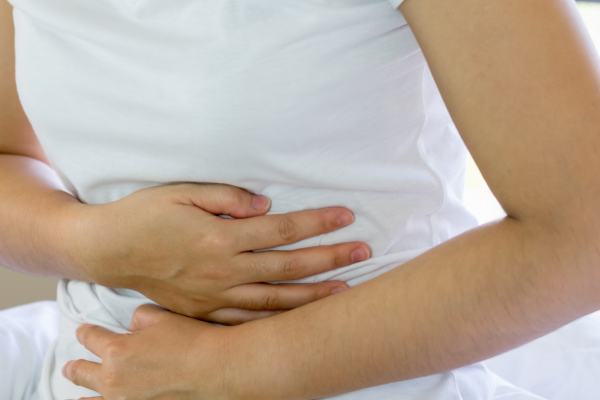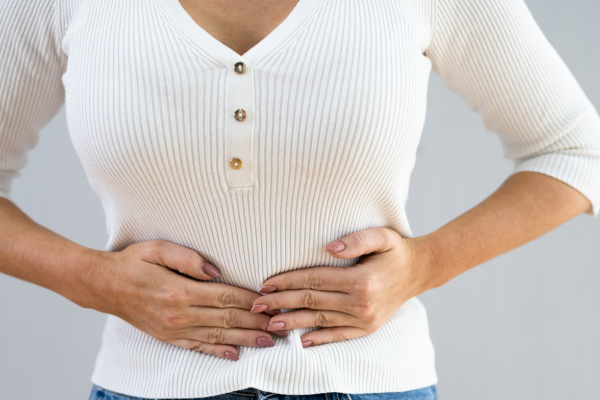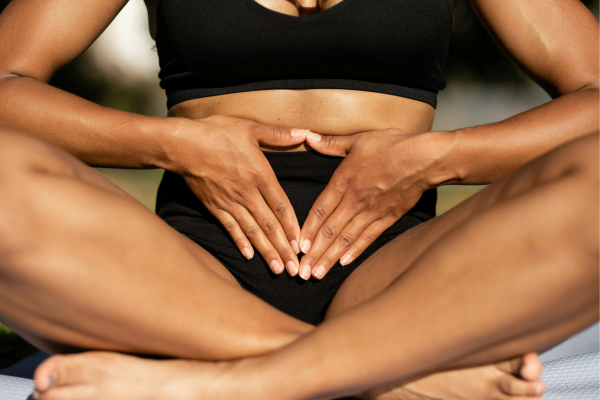Diverticulitis, gut health and collagen

The connection between diverticulitis, gut health, and collagen
Diverticulitis is an inflammation of diverticula, small pouches that can form in the intestinal wall, most often in the large intestine. Diverticulitis can cause serious symptoms and is a common cause of stomach discomfort, especially among older people. Research has shown that diverticulitis is not only linked to a weakened intestinal wall, but also to other factors such as diet, gut health, and the role of collagen in the structure and function of the gut. This article explores the connection between diverticulitis, gut health, and collagen, and how collagen may play an important role in preventing and treating diverticulitis.
What is diverticulitis?
Diverticulitis occurs when the diverticula, the small pouches that can form in the wall of the intestine, become inflamed or infected. These pouches, called diverticula, most often form in the large intestine as a result of high pressure inside the intestine. The pressure can be caused by a low-fiber diet, which means the intestine has to work harder to move stool. The diverticula are small outpouchings of the lining of the intestine that can become inflamed if they become infected by bacteria or if stool gets stuck in the pouches.
The most common symptoms of diverticulitis include abdominal pain (especially on the left side of the abdomen), fever, changes in bowel habits (diarrhea or constipation), nausea, and sometimes vomiting. In severe cases, diverticulitis can lead to complications such as intestinal perforation, bleeding, or abscess formation.
Diverticulitis and intestinal health
Gut health is about the overall function and structure of the intestines. A healthy gut is crucial for good digestion, nutrient absorption, and immune function. To maintain a healthy gut, it is important to maintain a balanced microflora (gut bacteria), eat a nutritious diet with adequate fiber, and ensure that the gut structure is strong and flexible.
One of the factors that affects gut health is the integrity of the gut wall. The gut wall is made up of different layers, including muscle, connective tissue, and epithelial cells. The connective tissue of the gut, which is rich in collagen, plays an important role in keeping the structure of the gut stable and flexible. A lack of collagen or an altered collagen composition can lead to a weakened gut wall, which in turn increases the risk of diverticulitis and other gut-related problems.
A low-fiber diet is one of the main risk factors for diverticulitis. Fiber helps keep your intestines moving and reduces pressure on your intestinal wall. When your diet is low in fiber, your intestines have to work harder to push stool through, which can lead to the formation of diverticula and an increased risk of inflammation in these pouches.
The role of collagen in gut health
Collagen is a protein that is an important part of the connective tissue in the body and plays a central role in providing structural support and elasticity to tissues. There are several types of collagen, but type I and type III are the most abundant in connective tissue, including the intestinal wall. Collagen gives the intestinal wall strength and flexibility, allowing it to handle pressure and deformation without cracking or becoming damaged.
In the intestine, collagen helps build a strong and flexible wall that protects against damage and inflammation. Collagen's function in the intestine is not only to provide structural support but also to contribute to healing processes. In cases of damage to the intestinal wall, such as inflammation caused by diverticulitis, collagen plays a crucial role in repairing and rebuilding tissue. A lack of collagen can therefore weaken the intestinal wall and make it more susceptible to damage, infection and inflammation.
The connection between collagen and diverticulitis
Studies have shown that changes in collagen composition may be a contributing factor to the development of diverticulitis. In patients with diverticulitis, it has been found that the intestinal wall may have a weakened structure, which makes diverticula more likely to form. This may be due to altered collagen production or a reduced amount of collagen in the connective tissue of the intestine.
Collagen is also involved in inflammation and healing. When diverticula become inflamed, scar tissue, which is rich in collagen, can form. This scarring can be a sign that the body is trying to heal the damaged tissue, but if collagen production is not balanced, it can cause the intestinal wall to become too stiff and less flexible. Such a stiff intestinal wall can increase the risk that diverticula will not heal properly, which in turn can lead to recurrent inflammation and complications.
Can collagen help prevent or treat diverticulitis?
Because collagen plays such an important role in the structure and function of the gut, it may be interesting to investigate whether collagen intake could have a positive effect on people suffering from diverticulitis. There is some research that suggests that collagen may have a protective effect on the intestinal wall and help strengthen it. Collagen is also an important building block in tissue healing, and it may help repair damage to the connective tissue of the gut.
Collagen can be taken as a dietary supplement, often in the form of hydrolyzed collagen, which means the collagen has been broken down into smaller peptides to be more easily absorbed by the body. Studies have shown that hydrolyzed collagen can help improve skin elasticity and reduce joint pain, and some studies have also shown positive effects on gut health. By strengthening the connective tissue in the intestinal wall, collagen can potentially reduce the risk of diverticula forming or becoming inflamed.
Another potential benefit of collagen is that it may help reduce inflammation in the intestines. Collagen is an important part of the body's healing mechanisms, and it can help repair tissue that has become inflamed or damaged. By supporting the healing process, collagen may help prevent diverticulitis from recurring or becoming more severe.
Diet and lifestyle factors to prevent diverticulitis
In addition to considering collagen as a supplement, there are several other lifestyle factors and dietary habits that can affect your risk of diverticulitis and overall gut health. Eating a diet rich in fiber is one of the most effective ways to prevent diverticulitis. Fiber helps keep your intestines moving and reduces pressure on your intestinal wall. A lack of fiber means your intestines have to work harder to push stool through, which can cause diverticula to form.
To promote gut health, you should also avoid a diet that is high in processed foods and low in nutrients. A diet rich in fruits, vegetables, whole grains, and legumes provides both fiber and important nutrients that support collagen production, including vitamin C, zinc, and copper.
Regular physical activity is also important for maintaining good gut health. Exercise helps keep the gut active and moving, which can help prevent both diverticulitis and other gut problems.
Conclusion
Diverticulitis is a common intestinal condition that can cause serious discomfort. Intestinal health, including the function of collagen in the intestinal wall, plays a central role in the development and treatment of diverticulitis. A strong and flexible intestinal wall, supported by collagen, may help prevent diverticulitis and reduce inflammation when diverticulitis occurs.
Maintaining a balanced diet with enough fiber and nutrients that promote collagen production, as well as considering collagen as a dietary supplement, can be important steps to support gut health. Lifestyle choices such as regular physical activity and a healthy diet can also help reduce the risk of diverticulitis and improve overall gut function.
So, by understanding the connection between diverticulitis, gut health, and collagen, we can better take care of our gut health and reduce the risk of serious gut problems in the future.






